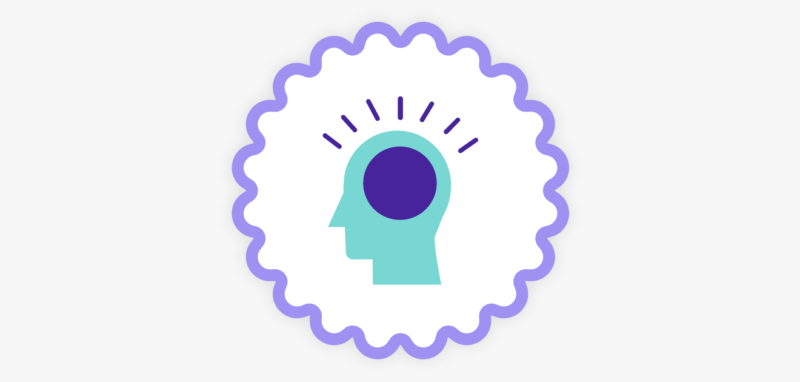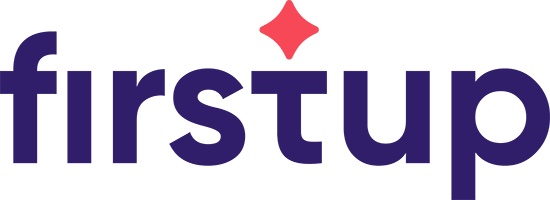Tech Skill
Python Skills
All about Python
Python is an object-oriented programming language notable for its clarity, power, and flexibility. Python is an interpreted language, meaning an interpreter reads and runs the code directly, rather than compiling it down into static lower-level code. While it is used in a variety of fields and contexts, including performance computing, Internet of Things, and full-scale web applications, it has gained particular popularity in the sciences and bioinformatics thanks to a rich catalog of tools such as iPython, Numpy, and Pandas.
Python’s syntax is concise and easy to understand, making it an ideal choice for beginners and experienced developers alike. It supports multiple programming paradigms, including procedural, object-oriented, and functional programming, and comes with a vast standard library and a vibrant ecosystem of third-party libraries and frameworks.
In Trends in Software Engineer Tech Skills: 2024 Report, Hired found that Python was the most commonly-requested skill on the Hired tech recruitment platform. A quarter of the total active positions in 2023 listed Python as a desired skill.
In past State of Software Engineers reports, survey respondents listed Python as their favorite language two years in a row.
Editor’s note: Check out the entire Software Engineer Trends series, covering tech skills, specializations, the impact of AI on the software development industry, salaries, locations, and more.
What to use Python for
Here are some key applications of Python:
Web Development
Python is used for building dynamic and scalable web applications using frameworks like Django, Flask, and Pyramid. With Python, developers can create feature-rich websites, APIs, and web services that power modern web applications.
Data Science and Machine Learning
Python is widely used in data science and machine learning for tasks like data analysis, data visualization, statistical modeling, and machine learning. With libraries like NumPy, pandas, scikit-learn, and TensorFlow, developers can build and deploy machine learning models and AI-powered applications with ease.
Scientific Computing
Python is popular in scientific computing for its ease of use and extensive libraries for numerical computing, scientific visualization, and computational modeling. With libraries like SciPy, matplotlib, and SymPy, developers can perform complex scientific computations and simulations efficiently.
Automation and Scripting
Python is used for automating repetitive tasks and scripting system administration tasks on various platforms, including Windows, macOS, and Linux. With Python’s built-in modules and libraries like os, shutil, and subprocess, developers can automate tasks like file management, data processing, and system administration.
Desktop GUI Development
Python is used for building desktop graphical user interface (GUI) applications using frameworks like Tkinter, PyQt, and wxPython. With Python, developers can create cross-platform GUI applications with native look and feel that run on Windows, macOS, and Linux.
Companies of all sizes use Hired to find engineers with Python skills
What is a Python Developer?A Python developer is a skilled software engineer who specializes in using the Python programming language to build and maintain applications across various domains. Beyond just writing code, a Python developer is proficient in understanding Python’s syntax, semantics, and ecosystem, designing scalable and maintainable solutions, and collaborating effectively with other team members.
Here’s what it means to be a Python developer:
- Proficiency in Python: A Python developer is fluent in writing Python code, including understanding Python’s syntax, data structures, control flow, and built-in functions. They are familiar with Python’s standard library and common third-party libraries and know how to leverage them effectively in their projects.
- Application Development: Python developers have expertise in building applications across various domains, including web development, data science, scientific computing, automation, and more. They understand the requirements and challenges of each domain and know how to tailor their solutions accordingly.
- Problem-Solving Abilities: Python developers are adept at solving complex problems and implementing algorithms and data structures efficiently in Python. They understand software design patterns, algorithmic complexity, and best practices for writing clean, maintainable, and efficient code.
- Collaboration Skills: Python developers work closely with other team members, including designers, testers, and project managers, to deliver successful projects. They communicate effectively, share knowledge and expertise, and contribute to a collaborative and productive team environment.
- Continuous Learning: Python developers are lifelong learners who stay updated on the latest trends, technologies, and best practices in Python development. They actively participate in the Python community, attend conferences, read books and blogs, and contribute to open-source projects to enhance their skills and knowledge.
As we look ahead to 2024, the demand for Python developers continues to grow, and new skills and capabilities are required to stay ahead of the curve. Here are some of the most important skills for Python developers in 2024:
- Advanced Python Features: Python developers need to have a deep understanding of advanced Python features and concepts, including decorators, generators, context managers, async/await, type hints, and data classes. They should know how to leverage these features to write concise, efficient, and maintainable code.
- Full-Stack Development: Python developers should have skills in full-stack web development using frameworks like Django, Flask, and FastAPI for backend development, and libraries like React, Vue.js, and Angular for frontend development. They should understand concepts like RESTful APIs, authentication, authorization, and database design.
- DevOps and CI/CD: Python developers need skills in DevOps practices and tools for automating the software development lifecycle, including continuous integration, continuous delivery, and continuous deployment (CI/CD). They should be familiar with tools like GitLab CI/CD, Jenkins, and Docker for automating build, test, and deployment processes.
- Cloud Computing: With the increasing adoption of cloud computing, Python developers need skills in cloud-native development using platforms like AWS, Azure, and Google Cloud Platform (GCP). They should be proficient in deploying and managing Python applications in the cloud, leveraging services like AWS Lambda, Azure Functions, and Google Cloud Functions for serverless computing.
- Data Science and Machine Learning: Python developers should have skills in data science and machine learning for tasks like data analysis, data visualization, statistical modeling, and machine learning. They should be familiar with libraries like NumPy, pandas, sci-kit-learn, and TensorFlow for building and deploying machine learning models and AI-powered applications.
Python resources
Check out our resources to continue sharpening your Python skills.
Hired profiles help developers showcase their top tech skills
After passing Hired skills assessments, candidates may showcase their skills to employers. They can opt to present an ‘Assessments’ badge on their profile. Candidates may take various assessments including Programming Skills, Full Stack, Backend, Frontend, iOS, Android, Debugging, DevOps Generalist, and DevOps AWS.
Find Python jobs on Hired.
Hiring Python developers can bring numerous benefits to your organization:
- Versatility and Flexibility: Python developers can build a wide range of applications across various domains, including web development, data science, scientific computing, automation, and more.
- Productivity and Efficiency: Python developers can leverage Python’s simplicity, readability, and extensive libraries to build applications faster and more efficiently.
- Community and Ecosystem: Python developers can leverage the vibrant and supportive Python community, including forums, user groups, and online resources, to share knowledge, solve problems, and stay updated on the latest trends and best practices in Python development.
- Scalability and Performance: Python developers can build scalable and high-performance applications using Python’s concurrency and parallelism features, multiprocessing, and asynchronous programming techniques.
- Innovation and Differentiation: Python developers can leverage Python’s extensive ecosystem of third-party libraries and frameworks to innovate and differentiate your products and services, enabling you to stay ahead of the competition.
Looking for candidates skilled in Python? Technical assessments are a multi-pronged solution. They allow you to streamline the hiring process and reduce bias with tech skill-focused benchmarks.
Hired Assessments offers a library of hundreds of questions and customizable coding challenge campaigns tailored to technical preferences. Centralize and standardize your evaluation process as you surface top talent with specific, hard-to-find skills.
See how Mastercard and Axon used Hired Assessments to vet top candidates.
Resources you’ll love

4 Offer Stage Strategies to Win Top Candidates
Getting a candidate to the offer stage You’ve run a seamless process. Your hiring manager and...

How to Manage Inbound Applications & Rethink Talent Sourcing Analytics: Tips for Recruiters
Experiencing an overwhelming volume of inbound applications? In a new episode of Talk Talent to...

AI Leads to More Human-Centric Recruitment & Hiring (What!?)
Leading the way to streamlined & people-focused processes AI is more than just an ongoing...








